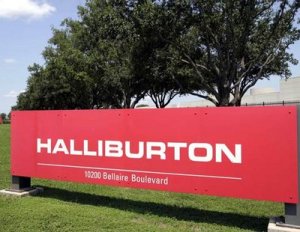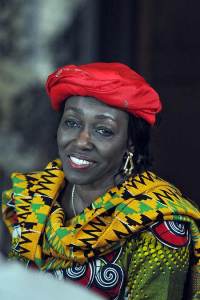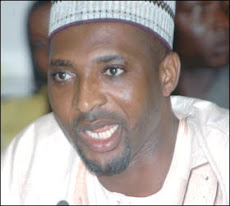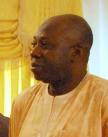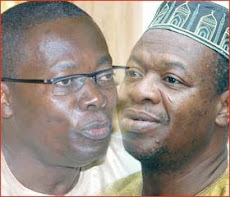A new chapter is about to be opened in the ongoing Mabey & Johnson bribery scandal, as a group of Ghanaians in the United Kingdom & Ireland demand that ex-President Jerry John Rawlings addresses questions pertaining to the debacle. According to the New Patriotic Party (NPP) UK & Ireland branch, since the scandal occurred at a time when Mr. Rawlings was president, it behooves him to “state clearly to the
nation what he knew and what his role in the matter was, including his failure to stop the corrupt officials that he appointed”.
The group, whose members attended the court proceedings leading to the conviction of M&J directors and naming of Ghanaian officials and politicians, mostly NDC Ministers, said former President Rawlings cannot sweep the matter under the carpet since his officials were neck-deep in the scandal.
Even though the scandal took place when Rawlings was in charge of the country, he had absolved himself of any wrongdoing and rather charged President Atta Mills to take action against the persons mentioned in the scandal.
Not less than six leading members of the NDC including the wife of the NDC founder, Nana Konadu Agyeman Rawlings, were mentioned in the bribery scandal.
They were said to have lined their pockets with bribe money amounting to several thousands of British pound sterling.
The British Court stated in its ruling that Dr George Adjah-Sipa Yankey, Minister of Health, took £15,000 as his share of the booty while Alhaji Amadu Seidu, Minister of State at the Office of the President, Osu Castle, pocketed over £10,000 with Dr Ato Quarshie, former Minister of Roads and Highways, collecting a whopping £55,000 in cash.
Other NDC gurus mentioned in the scandal are Kwame Peprah, SSNIT Board Chairman and former Minister of Finance, who incidentally had served prison terms with Dr Yankey over the Quality Grain scandal where over $20million was paid to an American woman for the cultivation of rice at Aveyime in the Volta Region; and Alhaji Baba Kamara, Ghana's High Commissioner designate to Nigeria and former NDC National deputy Treasurer, who was the 'political overseer' of the Ghana Development Fund (GDF), a ghost fund of £750,000 established to support NDC activities.
Turning its attention to the persons mentioned in the scandal, the NPP group called for their immediate dismissal.
Fearing that the reparation of over one million four hundred pounds payable to the Ghana government, which President John Evans Atta Mills expressed his willingness to collect, could be diverted to something unproductive, the group asked that it be put to good use.
When the amount is finally received, Parliament, the grouping asked, should monitor how it is disbursed.
The grouping also showed interest in the investigations which President Mills mentioned soon after the news of the scandal broke, asking the Constitutional Select Committee of Parliament to compel the Attorney General (AG) to commence the necessary probe into the issue.
The media, the NPP grouping asked, should continue to highlight what it describes as the hypocrisy of the NDC government and ex-President Rawlings, “under whose watch this massive scandal of international dimension took place and to ensure that politicians are never again allowed to use our goodwill to line their own pockets.”
Public demonstrations by anti-corruption NGOs, Christian Council and other religious organizations, have been called for by the UK-based pressure group to protest the M & J scandal.
The AG is being asked by it to secure a copy of the judgment from the Southwark Crown Court, with a view to questioning individuals mentioned in the court's judgment without delay.
A Crown Court in the United Kingdom gave a ruling recently against this major British bridge construction company for influencing through bribes, the award of contracts, in a number of countries including Ghana.
Ghanaian public office holders under the Rawlings regime were said to have received various sums of money so Mabey and Johnson could win contracts for bridge construction in the country.
Discussions about the scandal continue to dominate the media landscape.
A new dimension would be added to it when government eventually makes good, its promise of ordering an investigation into the scandal.
It would be recalled that during a programme on air, the Attorney General and Minister of Justice stated that in normal times, the officials should have stepped aside for investigations to go on, but was quick to add that she is awaiting the arrival of the President for the next line of action.
For some political activists, the scandal has provided them with taunting words as they scream to each other “Mabey”, eliciting the sarcastic response of “Johnson”.
Source: Daily Guide
Rawlings Must Make a Date with Teshie Military Range! By Kwame Okoampa-Ahoofe, Jr., Ph.D.
I have been slowly but studiously following the Mabey and Johnson contractual scam with no mean, or small, measure of amusement. Of course, the comical aspect of it all regards less the fact that those self-righteous “revolutionary” executioners of yesteryear have been clinically unmasked for what most Ghanaians have always known them to be – “ 'revolutionary' scam-artists par-excellence” – but the gravely dispiriting fact of the worst of criminal elements of Ghanaian society having successfully conned their way to power for more than a generation and still counting.
And for those of our readers who may just be “tuning in,” the Mabey and Johnson racket regards a family-owned British bridge-building and assembling company that successfully bribed its way into sizable contractual awards with the Ghana Government throughout much of the 1980s and 1990s, during which period the much-touted “incorruptible” Chairman Jerry John Rawlings held the reins of governance.
What makes this particular case more troubling, albeit hardly surprising, is the fact that Mr. Rawlings and his self-righteous goons had ridden to the crest of power under the pontifical banner of “Probity and Accountability,” and in the process summarily executing the main targets of their national revolutionary outrage. Prominent among those executed were, of course, Generals I. K. Acheampong, F. W. K. Akuffo and A. A. Afrifa. And their crime? Something called “Bottom Power.”
In the case of then-long-retired Gen. A. A. Afrifa, we were shortly to learn that the latter had penned a cautionary missive to the leaders of the so-called Supreme Military Council (SMC), admonishing Generals Acheampong and Akuffo of the need to swiftly dispose of the “clinically unbalanced” and “rascally” Flt.-Lt. Rawlings who had then been court-martialed for an abortive coup attempt. The words of the co-architect of the landmark putsch that auspiciously ousted Nkrumah's Convention People's Party (CPP) would turn out to be prophetic when the aforementioned generals and several of their colleagues were lined up at the Teshie Military Range and gunned down like rubber ducklings.
Regarding the summary execution of Gen. Afrifa, some have also suggested that it likely was a premeditated vendetta for the 1967 brutal slaying of General E. K. Kotoka, the lead-architect of the 1966 putsch against the CPP. In brief, observe theorists of the preceding narrative, the Anloga Mafia had long decided that the murder of their beloved kinsman was the veritable handiwork of the Mampong-Krobo gang of Asante supremacists who were loath to the idea of an Ewe minority assuming Ghana's reins of governance. The forensic reality, as amply documented by the sterling likes of Prof. L. H. Ofosu-Appiah, points to a frustrated Ho Mortar Regiment-based Lt. Arthur who, frustrated with his own lack of remarkable progress through the officer ranks of the Ghana Armed Forces (GAF), recruited a few other disgruntled low-ranking officers for the purpose of awarding themselves enviable laurels in the way and manner achieved by Gen. Kotoka and his henchmen.
In the case of Gen. Acheampong, legend has it that his bloodless overthrow of the Progress Party (PP) government of Prime Minister K. A. Busia had so irked the latter's “kinsman”/”clansman,” then-Capt. Boakye-Djan, that the first Ghanaian to be named “Professor” at the University of Ghana had to be promptly avenged. Rumor also had it that so hateful and contemptuous of Dr. Busia had the Nkrumah-leaning Acheampong been that the latter had even been overheard sneering that the serious business of nation-building could not be made light of by having a person of any undeserving Akan sub-ethnic polity lording it over the rest of the country.
Wherever the truth vis-à-vis the foregoing lies, Mr. Rawlings' summary execution of his predecessors and professional superiors was solely on the grounds of wanton corruption. His “Housecleaning Exercise” was, therefore, to be envisaged as the “revolution” geared towards the extirpation of governmental corruption once and for all.
Now, though, it turns out that Monsieur Rawlings has corrupted the moral fabric of Ghanaian society far beyond the dream and imagination of any of his June 4 victims. As of this writing (9/28/09), for example, it was being widely reported in the Ghanaian media that the bridge-building – no pun intended here – firm of Mabey and Johnson had bribed quite a remarkable number of the administrative minions of Chairman Rawlings to the whopping tune of at least one-half million pounds sterling.
What the preceding means is that the cost of modular bridges constructed for Ghana by Mabey and Johnson must, in all probability, have been significantly inflated, since the firm's widespread culture of bribery was aimed at guaranteeing it “no-bid contracts,” whereby more cost-effective competitors might have been altogether eliminated from the statutorily mandated contractual bidding process.
Anyway, since the Mabey and Johnson scandal broke, largely as a result of internal auditing by a new management group that has taken over the firm's reins of governance, and in consonance, or compliance, with Britain's anti-terrorism laws, among others, Ghana's President John Evans Atta-Mills has demanded an investigation into the matter. Nothing could be more risible, for the former University of Ghana tax-law professor and vice-president under Chairman Rawlings could not credibly claim to be totally unaware of an integral government culture of routine bribery and “no-bid contracts” that occurred during virtually the entire span of Mr. Rawlings' tenure.
It is also rather amusing that Mr. Rawlings would demand a thorough investigation into the Mabey and Johnson racket, one in which his first lady is reported to have been immersed up to her giraffe's neck. Ironically, at the same time that the presiding judge was in the process of handing down his long-forgone verdict, Mrs. Rawlings was reported to be pontifically lecturing American women on the salient tenets of women's rights at New York University, with President Atta-Mills leashed by the former first couple to a podium on the east-side of town at the United Nations headquarters.
It is also significant to note that just last year, when the SCANCEM-GHACEM scandal broke, regarding the P/NDC's criminal creation of a Scandinavian monopoly in the Ghanaian cement industry, Chairman Rawlings vehemently denied any involvement and even dared his accusers to provide forensic evidence. Well, in the Mabey and Johnson cause célèbre, Mr. Rawlings has a prime opportunity to perform hara-kiri, if, indeed, Dzelukope Jeremiah has any sense of self-worth, courage and honor. As our elders say: “The same cudgel used for lambasting Quashigah is also used for lambasting Quashivi.” Still, I am not holding my breath.
*Kwame Okoampa-Ahoofe, Jr., Ph.D., is Associate Professor of English, Journalism and Creative Writing at Nassau Community College of the State University of New York, Garden City. He is a Governing Board Member of the Accra-based Danquah Institute (DI), the pro-democracy think-tank, and the author of 20 books, including “Ghanaian Politics Today” (Atumpan Publications/Lulu.com, 2008). E-mail:okoampaahoofe@aol.com .
Source: Kwame Okoampa-Ahoofe, Jr., Ph.D.




